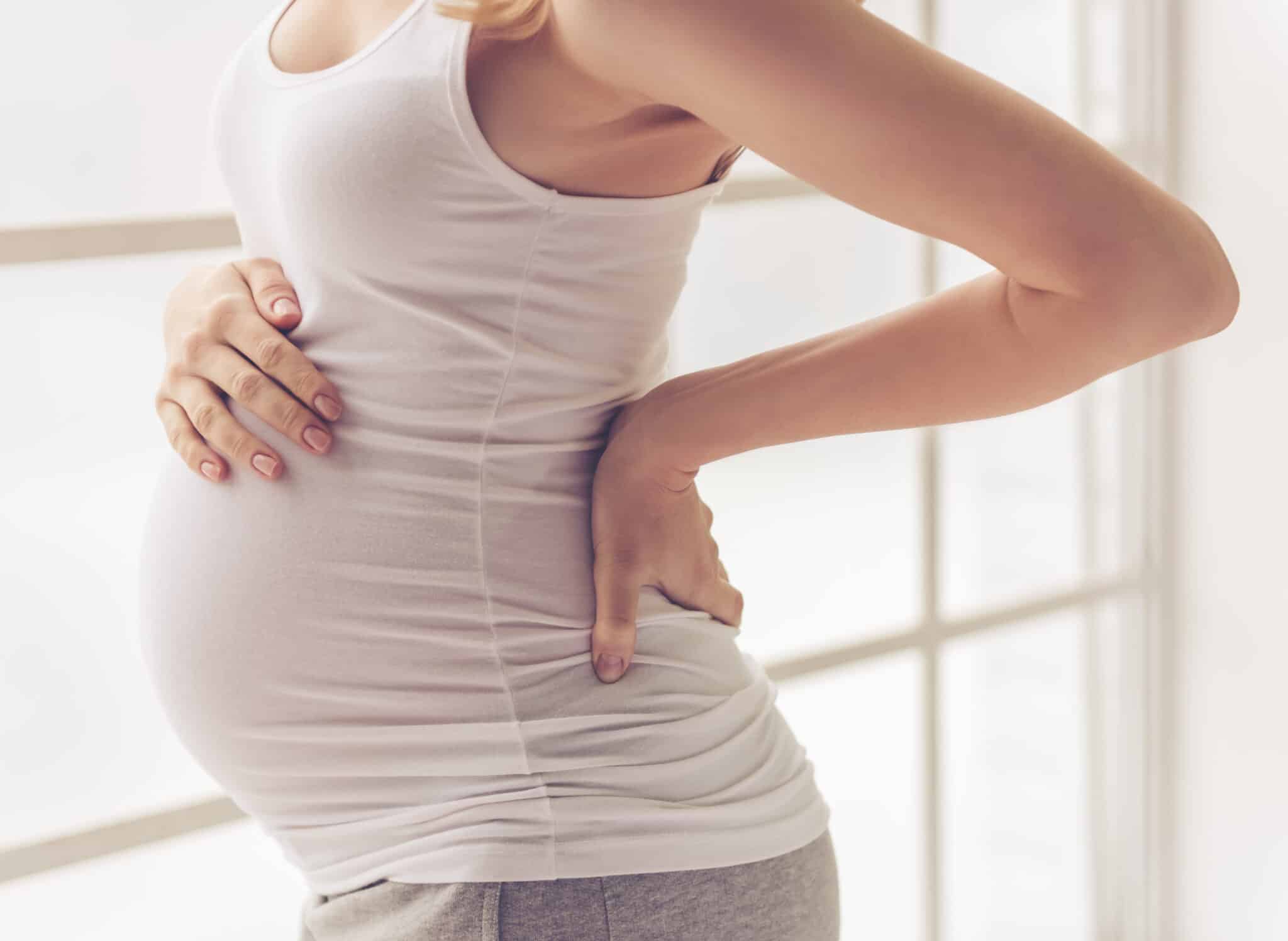Back pain is a common complaint during pregnancy, with studies estimating that up to 80% of pregnant women are affected to some degree. Pain is usually caused by the physical changes that occur in a woman’s body as her baby grows and her body adjusts to accommodate the growing fetus. In this article, we will discuss the causes of back pain in pregnancy as well as the various treatment and prevention strategies.
First of all, is back pain in pregnancy normal?
According to the American Congress of Obstetricians and Gynecologists, “Backache is one of the most common pregnancy problems, especially in the later months. The pain usually goes away after the baby is born. But for many women, back pain lingers for months after giving birth.”
Back pain is a common and normal symptom of pregnancy, especially as the pregnancy progresses. It is estimated that up to 80% of women will experience back pain at some point during their pregnancy.
What causes back pain in pregnancy?
As the body undergoes various changes to accommodate the growing fetus, the spine and surrounding muscles can experience additional pressure, strain, and discomfort. Let’s discuss some of these changes in more detail.
Weight gain
As a woman’s pregnancy progresses, she gains weight as the fetus grows. This added weight can put extra pressure on the spine and cause the muscles and ligaments to strain, leading to back pain. The weight gain can also cause changes in posture, which can further contribute to back pain.
Changes in posture
As the uterus grows during pregnancy, the center of gravity of the body shifts forward. This can cause a woman to lean back to compensate, which can lead to poor posture and strain on the back muscles. Poor posture can also cause the spinal discs to compress, leading to pain and discomfort.
Hormonal changes
During pregnancy, a woman’s body produces hormones that help to loosen the ligaments and joints in the pelvis to prepare for childbirth. However, these same hormones can also loosen the ligaments and joints in the back, which can cause pain and discomfort. The increased flexibility of the ligaments can also lead to spinal instability and contribute to back pain.
Muscle separation
As the uterus expands during pregnancy, the abdominal muscles may separate, which is known as diastasis recti. This can weaken the core muscles and lead to back pain. The weakened abdominal muscles can also lead to poor posture, which can further contribute to back pain.
Poor sleeping position
Sleeping on your back or stomach can put strain on your spine, leading to back pain. It is recommended that pregnant women sleep on their left side to improve circulation and reduce pressure on the back.
When should I contact my doctor?
It’s always a good idea to contact your healthcare provider if you’re experiencing back pain during pregnancy, especially if it’s severe or interfering with your daily activities. In some cases, back pain can be a sign of a more serious condition that requires medical attention. Here are some signs that you should contact your doctor:
- Severe or persistent pain
- Numbness or tingling
- Fever or chills
- Difficulty walking or standing
- Vaginal bleeding or discharge
It’s always better to err on the side of caution and contact your healthcare provider if you’re experiencing any concerning symptoms during pregnancy.
What are the treatments for back pain in pregnancy?
Fortunately, there are several treatments available to help manage and alleviate back pain during pregnancy. The following treatments that have been shown to be safe and effective.
Exercise
Low-impact exercises such as swimming, walking, and prenatal yoga can help strengthen the muscles that support the spine, improving posture and reducing back pain. Exercise can also help maintain a healthy weight, which can reduce the pressure on the spine. It’s essential to consult with a healthcare provider before starting any new exercise program.
Heat and cold therapy
Applying heat or cold to the affected area can help reduce pain and inflammation. A warm shower, heating pad, or warm compress can help relax tense muscles, while an ice pack or cold compress can help reduce swelling and numb the area.
Physical Therapy
A physical therapist can develop an individualized exercise program that targets the specific areas causing back pain. They can also provide manual therapy, which involves hands-on techniques to help alleviate pain and improve mobility.
Massage therapy
A prenatal massage can help relax tight muscles and improve circulation, reducing pain and discomfort. However, it’s important to find a massage therapist who is trained and experienced in working with pregnant women.

Acupuncture
Acupuncture involves the insertion of thin needles into specific points on the body, stimulating the release of endorphins and other natural pain-relieving chemicals. Studies have shown that acupuncture can be effective in reducing back pain during pregnancy.

Medication
Pain medications during pregnancy should be used with caution and only under the guidance of a healthcare provider. Non-steroidal anti-inflammatory drugs (NSAIDs) and opioids are generally avoided, but other types of pain relief such as acetaminophen (Tylenol) may be recommended.
Tips for preventing back pain in pregnancy
While it may not be possible to prevent back pain entirely during pregnancy, there are some steps that women can take to reduce their risk and manage symptoms. SOme of these include:
- Maintain good posture: As the uterus grows and the body’s center of gravity shifts, it’s important to maintain good posture to prevent strain on the back muscles. Avoid slouching or leaning back and instead try to stand and sit up straight.
- Exercise regularly: Regular low-impact exercise, such as walking or prenatal yoga, can help strengthen the muscles that support the spine and improve posture.
- Wear supportive shoes: Wearing shoes with good arch support can help reduce the strain on the back muscles.
- Lift properly: When lifting objects, be sure to use proper form, keeping the back straight and using the legs to lift.
- Sleep on your side: Sleeping on the left side is recommended during pregnancy to improve circulation and reduce pressure on the back muscles.
- Use supportive pillows: Using pillows to support the back and belly while sleeping or sitting can help reduce strain on the back muscles.
- Take breaks and rest frequently: Avoid prolonged standing or sitting and take frequent breaks to rest and stretch.
While these steps may not completely prevent back pain during pregnancy, they can help reduce the risk and manage symptoms if they do occur. It’s important to discuss any concerns about back pain with a healthcare provider and to develop a plan for managing symptoms.
